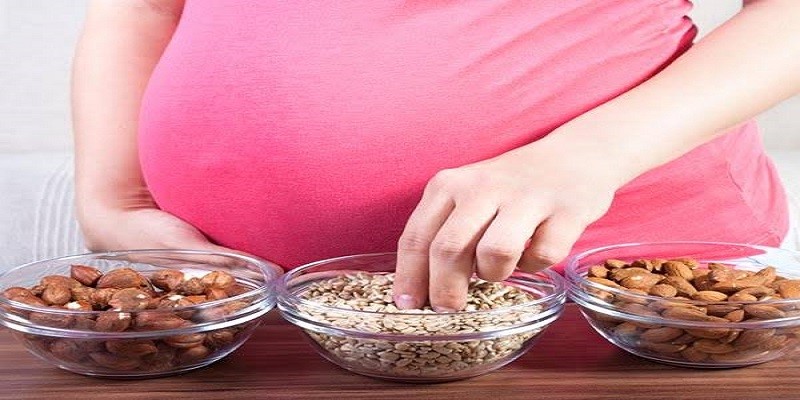Last Updated on May 29, 2024
Yes, you can eat black chana during pregnancy. It is generally safe and provides essential nutrients like protein, iron, and fiber. However, it should be consumed in moderation to avoid potential gastrointestinal issues and allergies.
Black chana, also known as black chickpeas, is a nutrient-dense legume commonly consumed in various forms. During pregnancy, maintaining a balanced diet is crucial for both maternal and fetal health. Black chana can be a beneficial addition to a pregnancy diet due to its rich nutritional profile. However, it is essential to understand the benefits, risks, and safe consumption methods to ensure optimal health outcomes.
What is Black Chana?
Black chana, also known as kala chana or black chickpeas, is a type of legume widely used in Indian cuisine. It is known for its high protein, fiber, and essential nutrient content. Black chana can be consumed in various forms, including boiled, roasted, or soaked. It is often included in salads, curries, and snacks, making it a versatile ingredient in a balanced diet.
Nutritional Value of Black Chana
| Nutritional Value | Details |
|---|---|
| Protein | 20g per 100g |
| Carbohydrates | 63g per 100g |
| Dietary Fiber | 12g per 100g |
| Fat | 6g per 100g |
| Calcium | 57mg per 100g |
| Iron | 4.31mg per 100g |
| Potassium | 718mg per 100g |
| Calories | 378 cal per 100g |
Risks of Eating Black Chana During Pregnancy
Safe Ways to Eat Black Chana During Pregnancy
To safely consume black chana during pregnancy, it is recommended to soak them overnight and cook them thoroughly. Boiled or roasted black chana can be added to salads, curries, or eaten as a snack. Moderation is key to avoiding gastrointestinal issues. Always consult with a healthcare provider before making significant dietary changes.
Alternatives to Black Chana During Pregnancy
| Alternatives | Precautions |
|---|---|
| Lentils | Ensure they are well-cooked to avoid digestive issues. |
| Green Gram (Moong Dal) | Soak and cook thoroughly to enhance digestibility. |
| Kidney Beans | Avoid if you have a legume allergy; cook well to prevent gastrointestinal discomfort. |
| Chickpeas (Kabuli Chana) | Opt for low-sodium canned versions and rinse thoroughly before use. |
Experts Tips
- Moderation is Key: Consuming black chana in moderate amounts can help avoid gastrointestinal issues (source).
- Cook Thoroughly: Always soak and cook black chana well to enhance digestibility and nutrient absorption.
- Consult Healthcare Provider: Before making any dietary changes, consult with your healthcare provider to ensure it aligns with your nutritional needs.
FAQs
Can I eat black chana every day during pregnancy?
Yes, you can eat black chana daily, but in moderation. Excessive consumption can lead to gastrointestinal issues like gas and bloating due to its high fiber content.
Is it safe to eat raw black chana during pregnancy?
No, eating raw black chana is not recommended during pregnancy as it can be hard to digest and may cause gastrointestinal discomfort. Always soak and cook them thoroughly.
Can black chana help with anemia during pregnancy?
Yes, black chana is rich in iron, which can help prevent anemia during pregnancy. Including it in your diet can support healthy hemoglobin levels.
Are there any side effects of eating black chana during pregnancy?
Potential side effects include gas, bloating, and allergic reactions in sensitive individuals. Consuming it in moderation and ensuring it is well-cooked can mitigate these risks.
How can I include black chana in my pregnancy diet?
You can include black chana in your diet by adding it to salads, and curries, or consuming it as a boiled or roasted snack. Ensure it is soaked and cooked thoroughly before consumption.
Conclusion
Black chana can be a nutritious addition to a pregnancy diet, offering essential nutrients like protein, iron, and fiber. However, it is crucial to consume it in moderation and ensure it is well-cooked to avoid potential gastrointestinal issues and allergies. Always consult with a healthcare provider before making significant dietary changes to ensure the health and well-being of both mother and baby.







